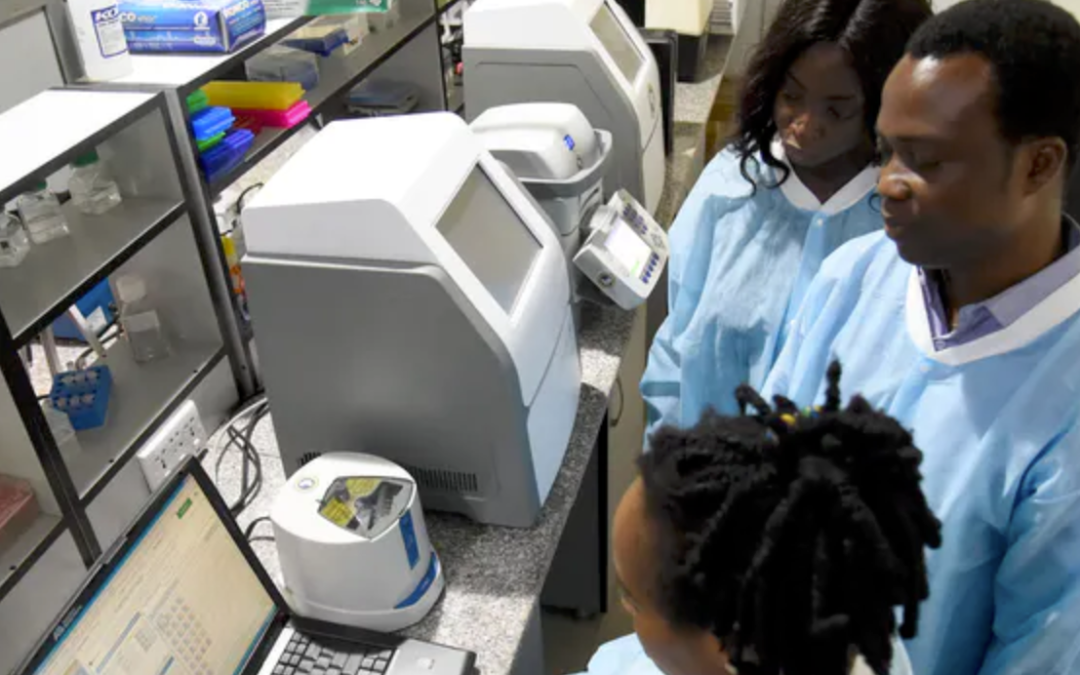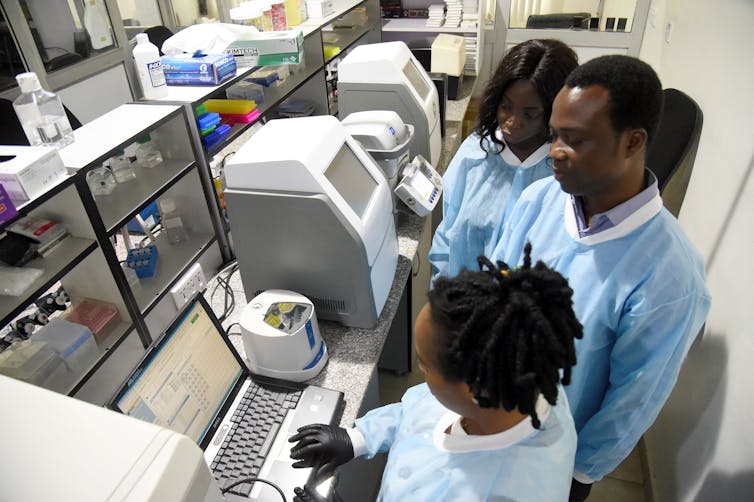Can Science and Faith Co-Exist?
Video Courtesy of Richard Dawkins Foundation for Reason & Science
So you’re intelligent. You’re a Christian. You love both of those aspects about yourself. It’s not enough for you to just get your praise on, you also get your study on.
You read the Bible, but you also read widely on many other subjects. You are in college and you don’t dread your courseload, except that one class. That one science class.
You imagine a professor opposed to anything that resembles religion or Christianity. You fear being embarrassed or ridiculed because of your faith. I’ve been there. Many of us who strive to represent our faith and use our minds for God’s glory have been there.
For me, it was Anthropology 101. For others, it was physics or astronomy. As science explores the natural world, it is inevitable that questions about who created this natural world come up. The good thing is that science and your faith can co-exist.
They are not polar opposites, and belief and love of one does not cancel out your belief in and love of the other.
In my pursuit of reconciling faith and science, I have concluded that they both have an authority, but their authority is relegated to two different spheres. Science asks, “What’s out there?” Faith asks, “Why are we here?”
Albert Einstein categorized these two questions as questions of fact and questions of value. Although in many ways these two things overlap and play off of each other, I do not believe they cancel each other out.
Science answers questions about what is observable and what we can quantify. In other words, it doesn’t seek to ask questions regarding the meaning of what we observe and quantify. Those things we believe in before we do any experiments or formulate our theories.
We already enter the science lab or classroom with a bias toward belief or non-belief in a Creator. We already have a religious tradition we hold to or don’t. The answers of science bring these issues to the surface, but they can never give the final answer on these issues.
What’s interesting is that the Christian faith helped aid the development of science. Galileo Galilei, who was sadly opposed by the medieval church, was a Christian and believed God had given us our mental faculties to explore the world.
He believed “the same God who has endowed us with sense, reason, and intellect has not intended us to forgo their use.” It was this belief that prompted Galileo to explore the universe and confirm that the planets revolve around the sun.
Ultimately, this discovery would lead to him placed under house arrest by church authorities. Galileo firmly believed in the two categories of facts and value, as he stated, “The Bible shows the way to go to heaven, not the way the heavens go.”
Although not a Christian, Albert Einstein believed in a higher power. His whole goal in pursuing scientific work was to see the mystery behind nature and to “attempt humbly to grasp with my mind a mere image of the lofty structure of all that there is.”
Einstein did not adhere to traditional religion, but had a particular disdain for atheists, considering them to be missing out on the wonder of the world and “the music of the spheres.”
Einstein could grasp science and the existence of something beyond our world. It is this mindset that motivated him to say “science without religion is lame; religion without science is blind.”
Then there’s the man that conquered the peanut and saved the whole South. A devout Christian man, George Washington Carver always found time to teach Sunday School to the students at Tuskegee University.
His fervent work into the peanut was fueled by his belief of the outdoors being a “great cathedral in which God could be continuously spoken to and heard from.” Carver’s time in the “great cathedral” yielded over 300 uses for the peanut and 100 uses for the sweet potato, as well as numerous synthetic products like the dye still used in Crayola crayons.
When faith and science clash
So what happens when scientific discoveries clash with your beliefs? Discoveries and theories in regards to evolution, cloning, and astronomy may seem to come into conflict with classical interpretations of the Bible.
Here’s what the great African theologian Augustine of Hippo had to say about it:
“If they [the infidel] find a Christian mistaken in a field which they themselves know well and hear him maintaining his foolish opinions about our books, how are they going to believe those books in matters concerning the resurrection of the dead, the hope of eternal life, and the kingdom of heaven, when they think their pages are full of falsehoods and on facts which they themselves have learned from experience and the light of reason?”
Augustine here is saying that instead of continuing to promote ignorance in matters of science, we need to be careful with making dogmatic assertions on things the Bible is not concerned about. The Bible contains science, but it is not a science book.
The Bible’s main purpose is spelled out by Jesus in John 5:39: “You search the Scriptures because you think they give you eternal life. But the Scriptures point to me!” (NLT).
The Bible is the history of God’s interaction with His people pointing to Jesus Christ. Its purpose is to lead you to Jesus and draw you closer to Him. It is not designed to give you a thorough explanation and summary of physics, biology, or astronomy. It is designed to give you one thing: knowledge and love for Jesus.
When faith and science clash, we have to begin questioning our interpretation—not our faith. When we fail to do this, it only serves to cause those who don’t believe to mock and ignore us.
For example: In Psalm 19, David talks about how the sun revolves around the earth. It rises from one end and completes its course at another end like a runner in a race. We know from science that it is actually the earth that revolves around the sun.
This is what got Galileo silenced and put on house arrest by the church. Instead of insisting that we need keep up the belief that the sun moves around the earth, maybe a different
interpretation is needed. David was not a scientist, but he was a poet or a psalmist. Psalm 19 is an example of Hebrew poetry, and we know poetry is never to be taken literally.
So what can we say about David’s assertion that the sun revolves around the earth?
That the psalm’s point is not to assert that the sun revolves around the earth. It was, instead, David’s way of being in awe of nature—something that scientists and Christians can both agree on.
Science and faith are not opposites. They are just different ways of pursuing different types of knowledge. One deals with facts and the other deals with the meaning of those facts.
They both are needed and can help in our pursuit of truth. So instead of dreading interacting with your professor or hanging out with your really smart friend, maybe you could engage them with humility and an openness to see where science and faith can connect instead of clash.
It just might open up a new understanding and love for God for the both of you.


